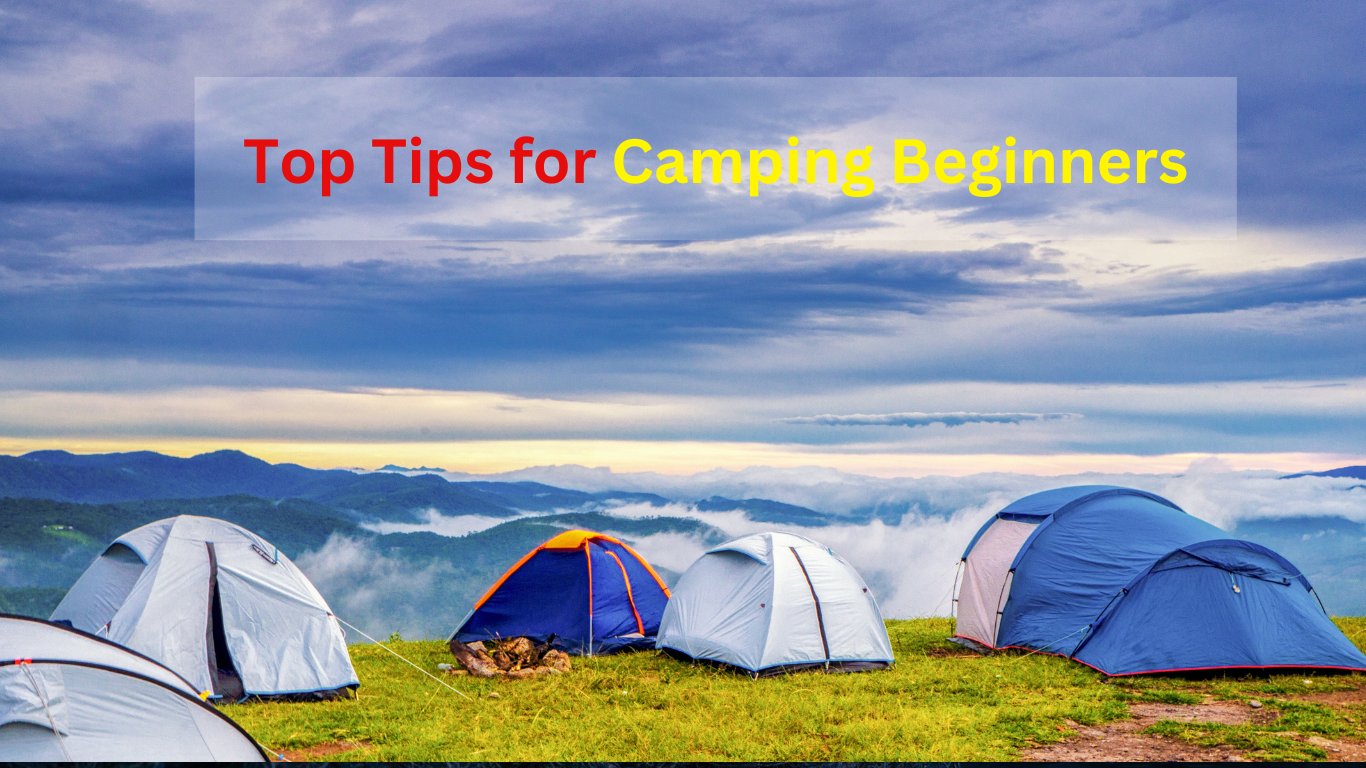Welcome to your first step toward a lifetime of adventure! Camping is one of the best ways to disconnect from the hustle of daily life and connect with nature. If you’re new to camping, you might feel a bit overwhelmed, but don’t worry!
This guide will walk you through everything you need to know to make your first camping trip an enjoyable and memorable experience.
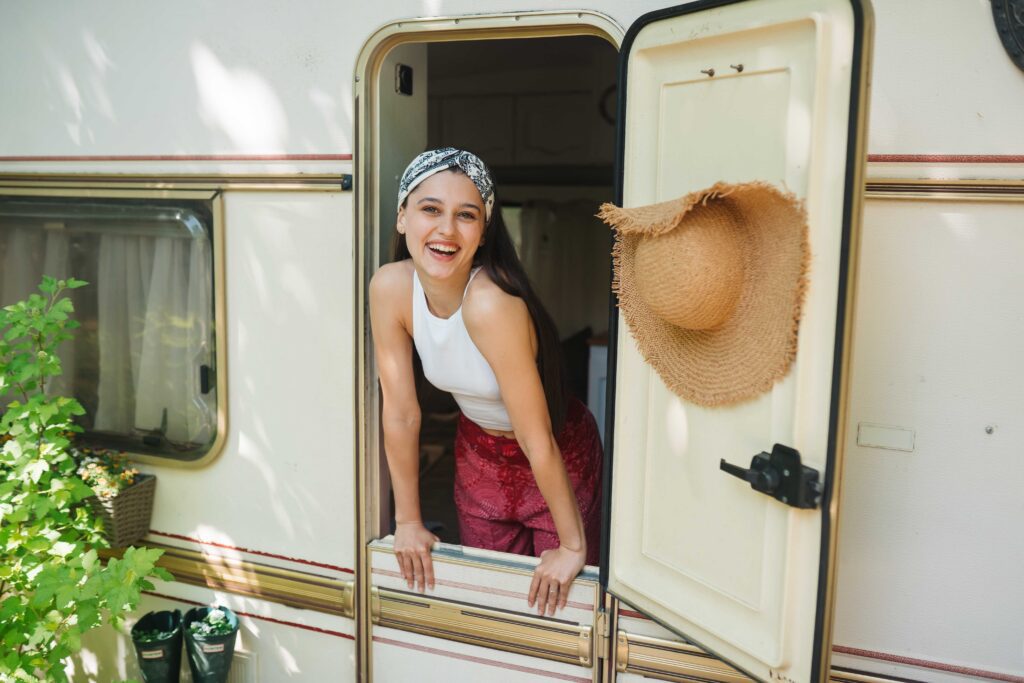
Table of Contents
Toggle1. Choosing the Right Campsite for Beginners
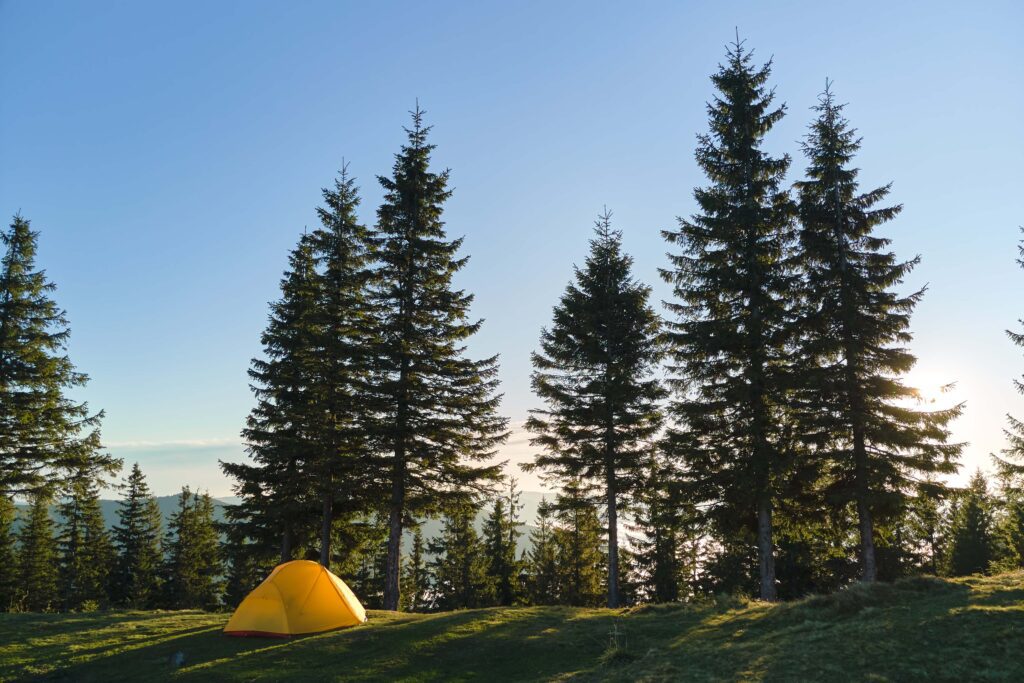
The first decision in your camping journey is selecting the right campsite. The location and facilities of your campsite can make or break your experience as a beginner.
Accessibility: As a first-timer, it’s a good idea to choose a campsite that’s easy to access by car. This way, you won’t have to trek long distances with heavy gear.
Amenities: Look for a campsite that provides essential facilities like restrooms, running water, and picnic tables. These features will ease you into camping without having to go fully primitive.
Scenic Beauty: Choose a campsite that offers breathtaking scenery—whether it’s near a lake, forest, or mountain range. Your surroundings will enhance the overall experience.
Pro Tip: Use online resources like the [National Park Service](https://www.nps.gov/subjects/camping/index.htm) to find beginner-friendly campsites with detailed reviews and maps.
2. Essential Camping Gear for Beginners

Having the right gear is the foundation of a successful camping trip. You don’t need to splurge on expensive gear to get started, but it’s worth investing in some key essentials.
Camping Gear Checklist:
Tent: Opt for a durable, weather-appropriate tent that’s easy to set up. For beginners, the Coleman Sundome Tent is a great choice—it’s affordable, reliable, and fits 2-4 people comfortably.
Sleeping Gear: Bring a sleeping bag rated for the temperatures you’ll encounter, along with a sleeping pad or air mattress to keep you comfortable and insulated from the ground.
Lighting: A headlamp or lantern is essential for lighting up your campsite at night. Don’t forget the extra batteries!
Cooking Equipment: A simple portable camping stove and a cooler will cover most of your cooking needs. The MSR PocketRocket stove is lightweight, reliable, and perfect for beginners.
For a full camping gear checklist, check out our dedicated guide
3. Planning Your Meals: Simple and Delicious
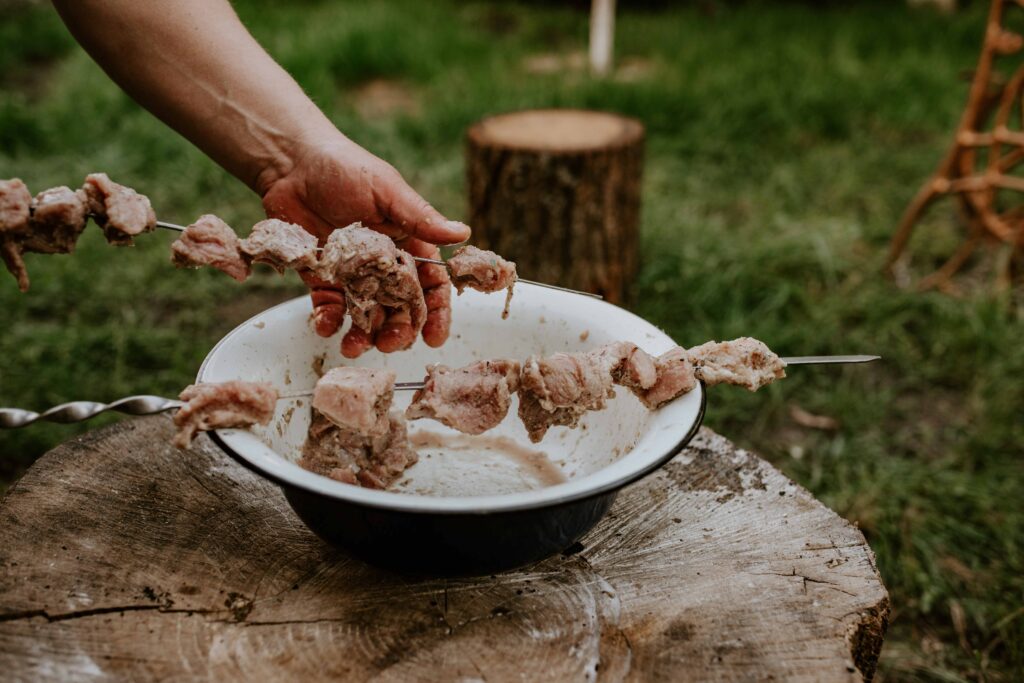
One of the joys of camping is cooking outdoors, but meal planning can feel daunting if it’s your first time. Here are some simple strategies to make it easier.
Pre-plan Your Meals: Opt for easy-to-cook meals like pasta, sandwiches, and foil-wrapped dinners. These can be prepared quickly with minimal cleanup.
Pre-cook at Home: Preparing meals like marinated chicken or pre-chopping vegetables at home can save time and reduce the hassle at the campsite.
Bring Snacks: High-energy snacks like trail mix, granola bars, and dried fruit are perfect for keeping your energy up between meals.
For some delicious, easy camping recipes, check out our beginner camping meal ideas
4. Mastering Basic Camping Skills
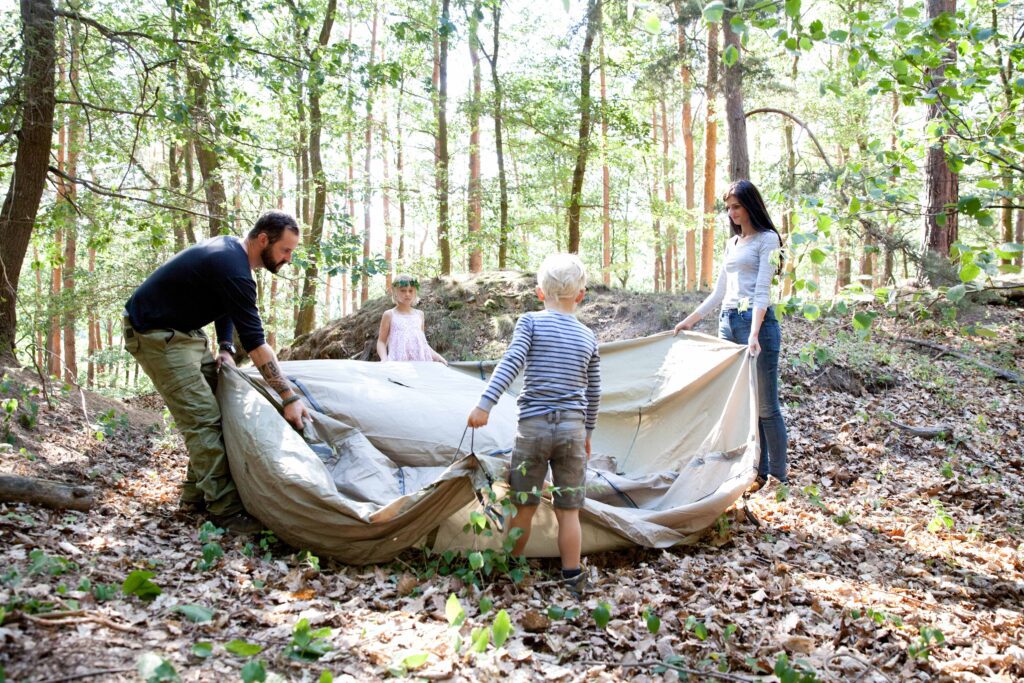
Before heading out, it’s helpful to learn some basic camping skills to make your trip smoother.
Pitching a Tent: Practice setting up your tent in your backyard before your trip. It’ll save time and reduce frustration at the campsite.
Building a Campfire: Learn the basics of building and maintaining a safe campfire. Always check the regulations of your campsite and use designated fire rings when available.
Navigating in Nature: While your phone’s GPS can be handy, always bring a backup map and compass. Offline navigation apps can also be useful if you lose cell service.
Learning these skills beforehand will boost your confidence and make your camping experience more enjoyable.
5. Leave No Trace: Camping Responsibly

Respect for nature is essential when camping, and following the Leave No Trace principles ensures we protect our environment for future generations.
Pack It In, Pack It Out: Always pack out all trash and food waste. This helps keep nature pristine and reduces the risk of attracting wildlife to your campsite.
Respect Wildlife: Admire animals from a distance and never feed them. Secure your food in airtight containers to prevent attracting them.
Minimize Fire Impact: Use established fire rings, keep fires small, and ensure the fire is completely extinguished before leaving the campsite.
By following these principles, you help keep natural areas beautiful and sustainable.
6. Weather-Proofing Your Camping Trip
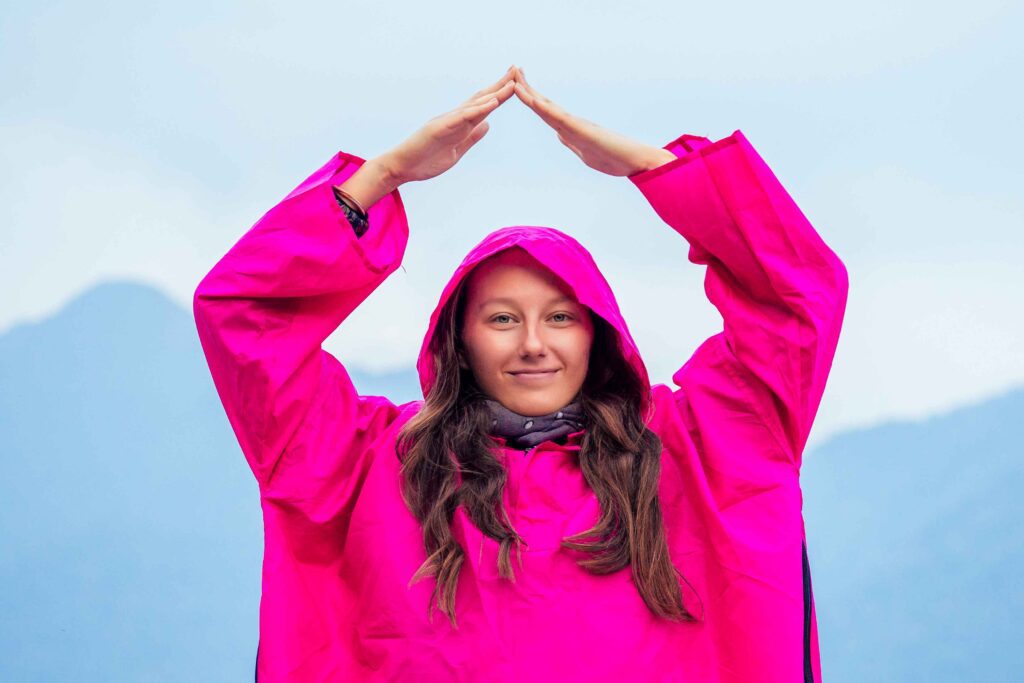
Weather in the wild can be unpredictable, so it’s important to be prepared for all conditions.
Layer Your Clothing: Bring clothing you can layer so you’re prepared for hot days and chilly nights. Include waterproof clothing in case of rain.
Check the Forecast: Regularly check the weather forecast leading up to your trip. Be ready for sudden changes and have a backup plan in case of severe weather.
Be prepared for any weather, and your trip will be much more comfortable and enjoyable
7. Staying Hydrated and Healthy Outdoors
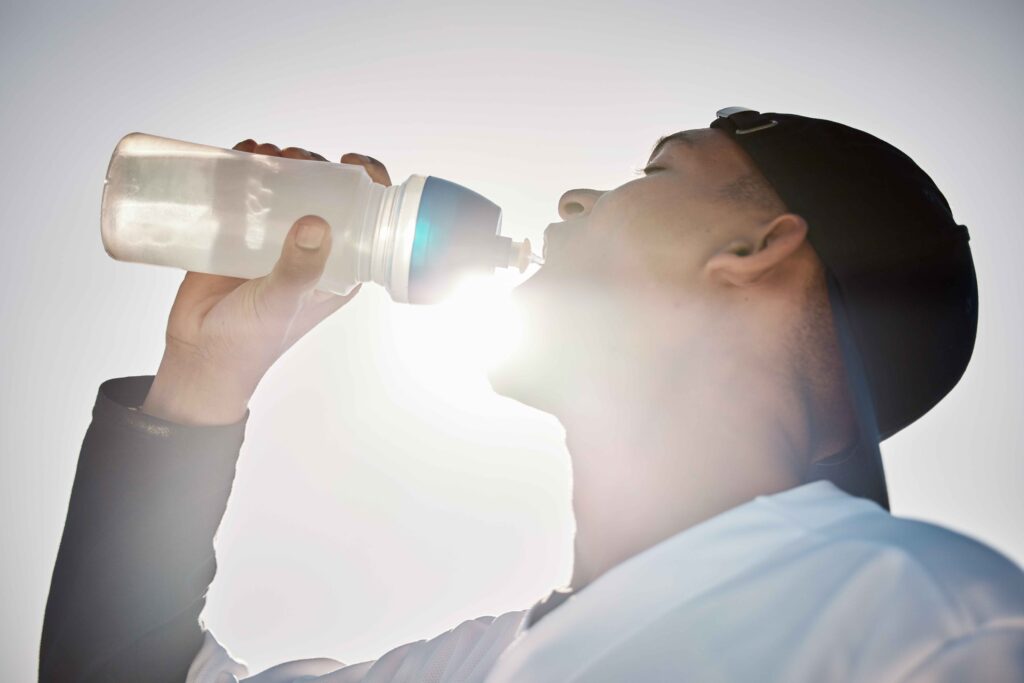
It’s easy to forget how important hydration is, especially when you’re busy exploring the outdoors. Make sure you stay hydrated and take care of your health.
Bring Enough Water: Calculate how much water you’ll need for drinking, cooking, and cleaning. Some campsites may not have potable water, so plan.
Water Purification: If you’re hiking or camping in more remote areas, bring a portable water filter or purification tablets to ensure you have access to safe drinking water.
Remember, staying hydrated and well-fed will keep you energized and ready to enjoy every moment of your adventure.
8. The Joy of Unplugging and Reconnecting with Nature
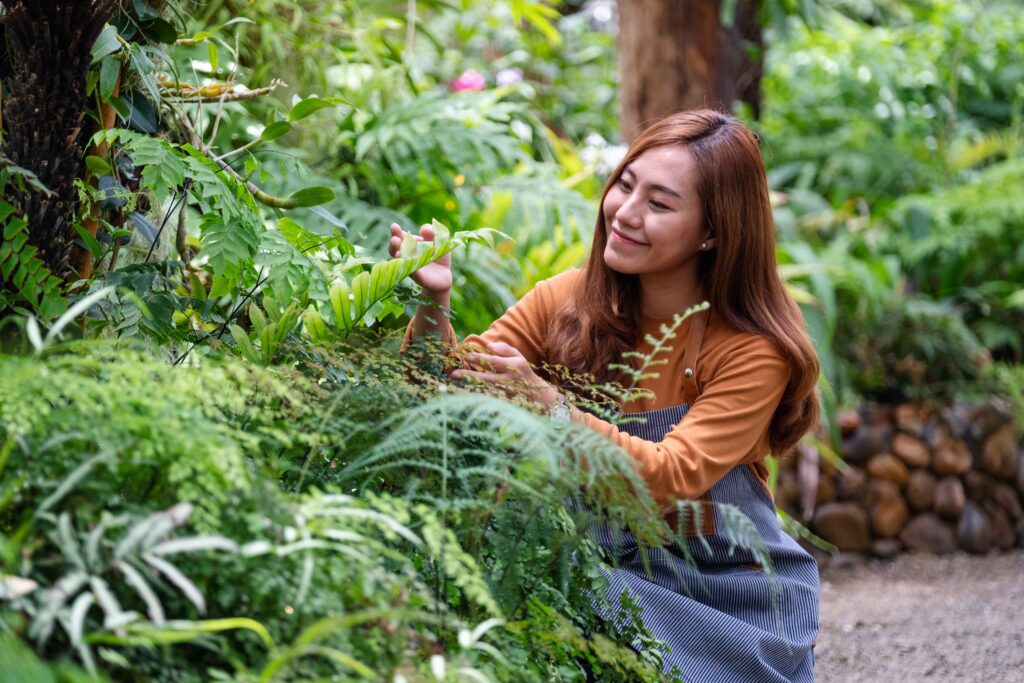
One of the best things about camping is the chance to unplug from the digital world and fully enjoy nature.
Explore Your Surroundings: Whether it’s hiking, swimming, or simply relaxing in a hammock, take the time to appreciate the natural world around you.
Nighttime Activities: Spend your evenings stargazing, telling stories around the campfire, or just soaking in the peaceful ambiance of the night.
Camping gives you a rare opportunity to disconnect and recharge both mentally and physically
9. Safety First: Essential Tips for First-Time Campers

Safety should always be a priority when camping. Here are a few essential safety tips to keep in mind:
First Aid Kit: Always carry a first aid kit with bandages, antiseptic, and other basic medical supplies. Know how to treat common injuries like cuts, scrapes, and burns.
Emergency Communication: Tell someone your itinerary before heading out and bring a fully charged phone or GPS device. If you’re in a remote area, consider carrying a personal locator beacon or satellite phone.
Safety measures will ensure your trip is as enjoyable as it is safe.
Conclusion
Camping is a rewarding experience that offers adventure, relaxation, and a chance to connect with nature. With these beginner tips in mind, you’re well on your way to an unforgettable camping trip. Remember to plan, pack smart, and enjoy every moment of your time in the great outdoors.
FAQs (Frequently Asked Questions)
1. Q: What are the best campsites for first-time campers?
A: Look for well-maintained campgrounds with amenities like restrooms, potable water, and clear trail markers. Popular beginner-friendly options include national parks, state parks, and KOA campgrounds.
2. Q: What camping gear do I need as a beginner?
A: Start with essentials: a tent, sleeping bag, sleeping pad, headlamp, and a camping stove. Gear like the Coleman Sundome Tent and MSR PocketRocket stove are affordable and beginner-friendly.
3. Q: How do I choose the right tent for my first camping trip?
A: Pick a tent that’s easy to set up and suited for the expected weather. A 3-season tent like the Coleman Sundome is ideal for most conditions. Make sure it fits your group size comfortably.
4. Q: What are some easy camping meals for beginners?
A: Simple meals like pasta, sandwiches, and foil-wrapped dinners are great for camping. Pre-cooked or pre-chopped ingredients can save time. Bring snacks like trail mix and granola bars for quick energy.

